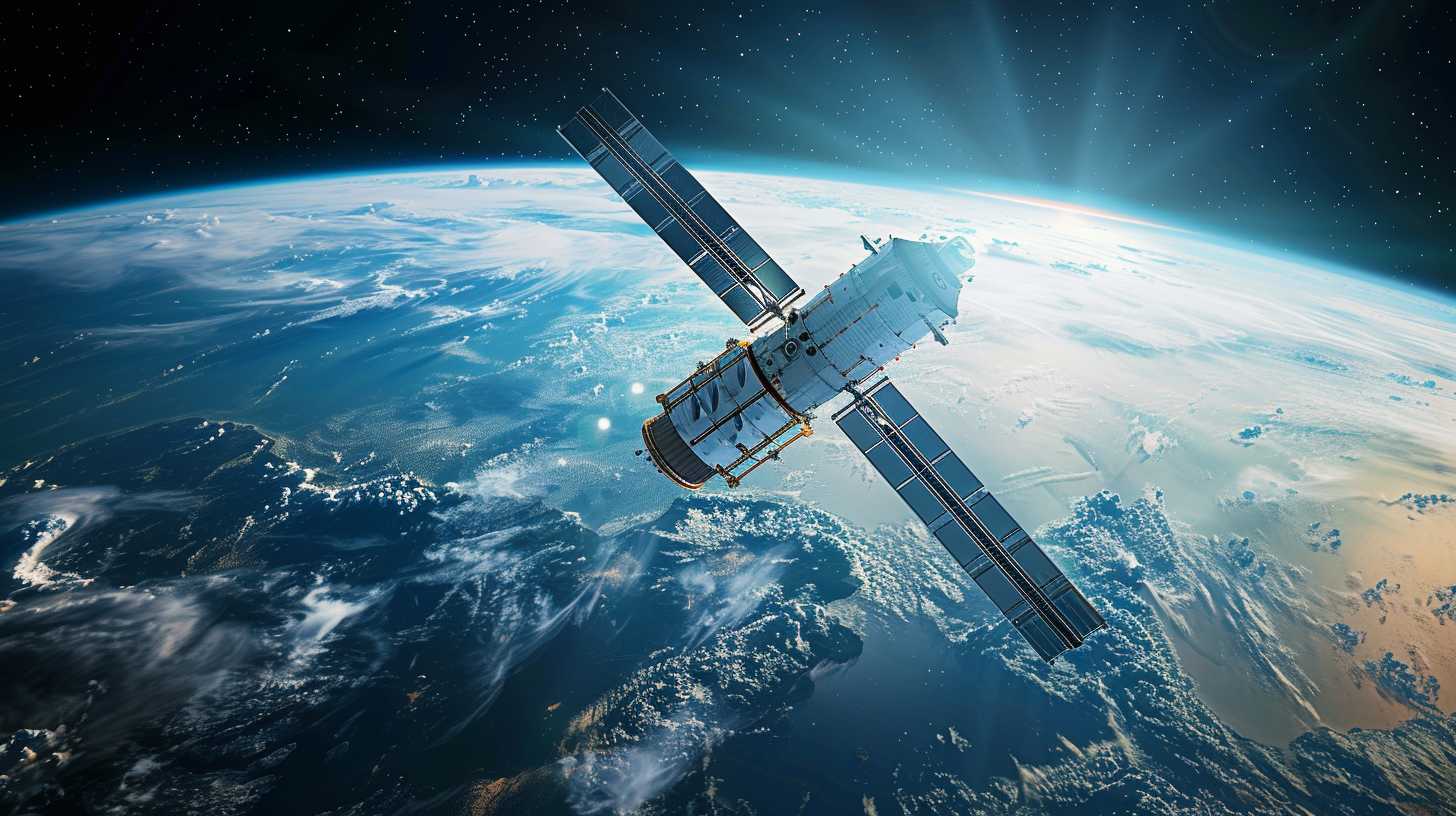Table of Contents Show
While some may argue that space exploration should remain the domain of governments, we’ve observed a significant shift where private companies are not just participating but leading the charge in making space tech mainstream. From launching satellites that improve global communication networks to initiating the first steps towards commercial space tourism, these pioneering endeavors are redefining what’s possible. As we explore the impact of these advancements, from partnerships and collaborations to shifts in the regulatory landscape, one can’t help but wonder how these innovations will trickle down to improve technologies on Earth. The implications are vast, and we’re on the brink of understanding their full potential.
Key Takeaways
- Private companies are central to the innovation and democratization of space exploration.
- Collaborations between startups and industry giants are accelerating space technology advancements.
- Space technology developed by private companies has significant applications on Earth, enhancing global connectivity and sustainability.
- The involvement of private companies is making space travel more accessible to civilians, promising a new era in exploration.
The New Space Race
In recent years, we’ve witnessed a resurgence in the space race, now propelled by both national agencies and private companies vying for celestial dominance and innovation. This renewed interest isn’t just about sparking human potential and expanding our freedom beyond Earth’s confines. We’re not just spectators in this grand adventure; we’re active participants in shaping a future where the sky’s no longer the limit.
Governments have reignited their passion for exploration, setting ambitious goals that seemed unthinkable just a few decades ago. We’re talking about returning humans to the Moon, sending astronauts to Mars, and deploying telescopes that can look back at the dawn of the universe. It’s a proof of our unyielding spirit of discovery, a drive that transcends borders and unites us in a common quest for knowledge and progress.
But it’s not just about the destinations. We’re innovating at a breakneck pace, developing technologies that could revolutionize life on Earth. Think about it—satellites that improve global communication, navigation systems that guide us with unprecedented precision, and observational tech that monitors our planet’s health in real time. These advancements are the byproducts of our celestial aspirations, proving that when we reach for the stars, we also anchor ourselves more firmly to our home.
As we forge ahead in this new space race, we’re not just competing; we’re collaborating, learning, and growing together. It’s a journey of collective ambition, where every launch brings us a step closer to understanding our place in the cosmos and ensuring our freedom to explore it.
Pioneering Private Players
Building on the momentum of a rejuvenated space race, private companies have now stepped into the arena, transforming the landscape of space exploration and innovation. We’re witnessing a pivotal shift where these audacious pioneers are not just supporting governmental agencies but are becoming the vanguards of the industry themselves. They’re breaking free from traditional constraints, propelling us toward an era where access to space isn’t just a governmental attestation but a playground for visionary minds and daring entrepreneurs.
We’re part of a community that craves freedom—the freedom to explore, to innovate, and to dream without limits. The entrance of private players into space exploration embodies this spirit. It’s not just about launching rockets or deploying satellites; it’s about creating opportunities that were once deemed impossible. These companies are not waiting for permission; they’re charting their own courses, building their own rockets, and setting their own milestones.
In this new dawn, we’re seeing a diversity of missions and objectives, from commercial spaceflights and asteroid mining to the development of off-Earth manufacturing and habitation. The ambitions are as vast as space itself, driven by the belief that the final frontier is not just a place for scientific research but a domain of infinite possibilities.
This era of private space exploration is a validation to human ingenuity and the relentless pursuit of freedom. We’re part of a narrative that extends beyond our planet, reaching for the stars with the spirit of pioneers. The path ahead is uncharted, but together, we’re crafting a future where space is the next great frontier for all of humanity.
Satellite Revolution
The satellite revolution is reshaping our world, offering unprecedented connectivity and insights from space. We’re witnessing a dramatic transformation as private companies launch satellites at an accelerating pace. This surge isn’t just about exploring the unknown; it’s about harnessing the power of space to solve real-world problems. From improving global communication networks to monitoring climate change, satellites are becoming indispensable tools for freedom and progress.
We’re now more connected than ever. Remote areas that were once cut off from the world are now beneficiaries of high-speed internet, thanks to constellations of small satellites orbiting the Earth. This connectivity empowers people with information, opens up new opportunities for education, and fuels economies in the most secluded regions. It’s a game-changer, breaking down barriers and fostering a more inclusive global community.
The insights we’re gaining from satellite data are equally transformative. We can track environmental changes in real-time, predicting natural disasters with greater accuracy and safeguarding communities. It’s about taking control, using space-based technology to protect our planet and its inhabitants.
Additionally, the democratization of space technology means that it’s not just governments and large corporations that can leverage this power. Startups and researchers are gaining access to satellite data, sparking innovation and driving forward solutions that address pressing global challenges.
As we push the boundaries of what’s possible, it’s clear that the satellite revolution isn’t just about reaching for the stars. It’s about bringing the power of space down to Earth, opening up a world of possibilities for everyone who yearns for freedom and progress.
Commercial Space Tourism
Exploring the cosmos is no longer just a dream for astronauts, as commercial space tourism opens the heavens to adventurers and visionaries alike. We’re stepping into an era where the final frontier is within our grasp, thanks to the daring endeavors of private companies who’ve made it their mission to democratize space travel. It’s not just about the thrill; it’s about breaking free from Earth’s bounds and experiencing the incomparable sense of liberation that comes from floating among the stars.
We’ve watched as pioneers in the industry have launched civilian crews into orbit, offering a glimpse of the boundless possibilities that lie beyond our atmosphere. These missions aren’t reserved for the select few anymore. They’re a call to the dreamers, the rebels, and the free spirits, inviting us to join an exclusive club of space travelers. It’s a stark reminder that the sky’s no longer the limit; it’s just the beginning.
As we chart these unexplored territories, we’re not just passengers; we’re participants in a historic movement. We’re claiming our right to venture into the unknown, to seek new horizons and embrace the freedom that comes with stepping off the planet. This isn’t just a new form of tourism; it’s a revolution, a sign of human ingenuity and the unstoppable desire to explore.
The journey into space is more than a luxurious escapade; it’s a liberation from the everyday, an emblem of what we can achieve when we dare to dream big. And we’re just getting started.
Innovations in Space Tech
As we explore into the domain of space tech, countless innovations are revolutionizing how we interact with the cosmos. It’s not just about making history; it’s about breaking free from Earth’s gravity, both literally and metaphorically. The strides we’re making are not just leaps for mankind but jumps towards unlimited freedom, where the sky’s no longer the limit.
One of the most exhilarating advancements is in propulsion technology. We’re moving away from traditional chemical rockets, which are expensive and polluting, towards more sustainable and efficient systems like ion thrusters and solar sails. This shift promises to make space travel more accessible and less harmful to our planet.
Another area where we see important progress is in habitat technology. As we aim for longer stays in space, creating livable, comfortable environments for astronauts becomes critical. Innovations in habitat design are focusing on regenerative life support systems and radiation protection, ensuring that humans can thrive in space for extended periods.
To emphasize the significance of these advancements:
- Reusable Rockets: Dramatically reducing the cost of access to space, enabling more missions and making space travel more feasible for everyone.
- Satellite Internet Constellations: Providing global, high-speed internet access, breaking down information barriers and fostering freedom of knowledge.
- 3D Printing in Space: Allowing for the on-demand production of tools and parts, greatly reducing the need for resupply missions and enhancing self-sufficiency.
These innovations are just the beginning. We’re on the cusp of a new era where space becomes a domain of endless possibilities, a domain where our desire for freedom can truly take flight.
Partnerships and Collaborations
In our journey toward space exploration, partnerships and collaborations have become the backbone of innovation, propelling us into new domains of possibility. We’ve witnessed an unprecedented surge in alliances between private companies, government agencies, and academic institutions, each bringing unique strengths to the table. These collaborations aren’t just about sharing resources; they’re about combining visions to achieve something greater than we could do alone.
We’re seeing startups, once considered too small to make an impact, joining forces with industry giants. Together, they’re tackling challenges that seemed insurmountable, from reducing the cost of space travel to making life sustainable in outer space. It’s a proof of the power of unity, proving that when we come together, there’s no limit to what we can achieve.
Furthermore, these partnerships are democratizing space exploration. They’re opening doors for everyone to contribute, whether you’re a seasoned astronaut or a high school student with a passion for the stars. This inclusivity is crucial. It guarantees that the future of space is shaped by a diverse range of perspectives, enriching our journey beyond the confines of Earth.
As we move forward, we’re committed to fostering even more collaborations. We believe that the key to revealing the mysteries of the universe lies in our ability to work together. It’s not just about reaching new heights; it’s about expanding our freedom to explore, to dream, and to discover. The sky is no longer the brink—it’s just the beginning.
Regulatory Landscape Shifts
While we continue to foster partnerships for space exploration, we must also navigate the evolving regulatory landscape that shapes our endeavors. The shift in this landscape is not just a matter of compliance but a reflection of our growing ambitions beyond Earth. As private companies spearhead innovations, we’re seeing regulatory bodies adapt, aiming to balance oversight with the freedom necessary for innovation.
The transformation of regulations is pivotal for us. It’s not just about staying within the lines; it’s about how these changes can actually empower our missions. Here are three key shifts we’re observing:
-
Streamlined Licensing Processes: Governments are simplifying the licensing for launches, satellite deployments, and other space activities. This reduction in bureaucratic red tape is vital for agile operations and timely missions.
-
Global Collaboration on Space Traffic Management: With the increase in satellite launches, there’s a growing need for international cooperation to prevent collisions and manage space traffic efficiently. This collaborative approach ensures not just our freedom to explore but also our responsibility towards space safety.
-
Enhanced Protection for Space Assets: Regulatory frameworks are evolving to better protect the assets we place in orbit, recognizing their importance not just to individual companies but to global infrastructure. This safeguards our investments and encourages further exploration and utilization of space resources.
As we push the boundaries of what’s possible in space, the regulatory landscape must adapt, ensuring that our pursuit of the stars is matched with the freedom and protection necessary to innovate and explore. This dynamic between regulation and freedom is key to the sustainable expansion of humanity’s presence in space.
Impact on Earth Technologies
As we explore the impact of space tech on Earth technologies, we’re seeing unparalleled strides in enhanced global connectivity and the development of advanced materials. These innovations are not just reshaping our communication networks, but they’re also paving the way for new possibilities in various industries. Let’s look at how these advancements are setting the stage for a future where the boundary between space technology and everyday life continues to blur.
Enhanced Global Connectivity
Every facet of Earth’s technologies has been greatly enhanced by the advent of space tech, fostering unparalleled global connectivity. We’ve seen firsthand how space innovations have liberated us from traditional limitations, offering new avenues for communication, navigation, and observation.
Here’s how:
- Satellite Communications: We’re now connected in even the most remote areas, breaking down barriers to information and opportunity.
- GPS Technology: Freed from the confines of uncertainty in navigation, we traverse the globe with confidence.
- Earth Observation: With satellites constantly monitoring, we’re empowered to respond to environmental challenges with agility.
These advancements not only redefine our daily lives but also ensure we’re not bound by the physical limitations of our planet. Embracing space tech means embracing freedom, a validation of our relentless pursuit of connectivity and progress.
Advanced Material Development
The development of advanced materials, inspired by space technology, is revolutionizing Earth’s industries by enhancing durability, efficiency, and sustainability. We’re seeing materials that can withstand extreme temperatures and pressures, being integrated into everything from automobiles to smartphones, making them lighter, stronger, and more energy-efficient. This isn’t just about pushing boundaries; it’s about bringing those innovations home, making our daily tools and infrastructure last longer and perform better. We’re empowering businesses to innovate at a pace we’ve never seen before, driving down costs and opening up new possibilities for what our technologies can achieve. It’s clear that the space race isn’t just about reaching the stars; it’s about bringing that cutting-edge innovation back to Earth, giving us all the freedom to live better, more sustainable lives.
The Future of Space Exploration
We’re on the cusp of a new era in space exploration, with technological advancements promising to redefine our understanding and access to the cosmos. The trajectory we’re on isn’t just about reaching further into space but also about guaranteeing that the freedom to explore and innovate in this final frontier is more accessible than ever before.
As we look to the future, there are several key developments that stand out:
-
Commercial Space Travel: Companies are breaking barriers, making it possible for civilians to experience the wonder of space. This isn’t just for the elite; it’s a step towards democratizing space travel, ensuring that the freedom to explore beyond our planet is a shared dream, not a privileged few’s reality.
-
Space Habitats: We’re moving beyond temporary visits. The development of sustainable habitats in space means that living among the stars could become a reality for many. This freedom to establish new societies in space opens up endless possibilities for how we live, work, and govern ourselves.
-
Resource Utilization: The extraction and use of space resources promise a future where Earth’s environmental and resource pressures are alleviated. This not only guarantees our planet’s longevity but also gives us the freedom to sustain human life far beyond our current boundaries.
These developments aren’t just about expanding our physical reach; they’re about embracing the freedom to explore, innovate, and dream. The future of space exploration holds the promise of unbounded freedom, where the cosmos is not just a place we reach for but a place we can call home.
Conclusion
We’ve witnessed an incredible shift in space exploration, with private companies now playing a pivotal role. The satellite sector alone has seen a 70% increase in launches over the past decade, a validation to this new era’s dynamism. As we embrace commercial space tourism and groundbreaking innovations, it’s clear that the synergy between public and private sectors will redefine our approach to the cosmos. The future of space exploration isn’t just promising; it’s already unfolding before our eyes.








